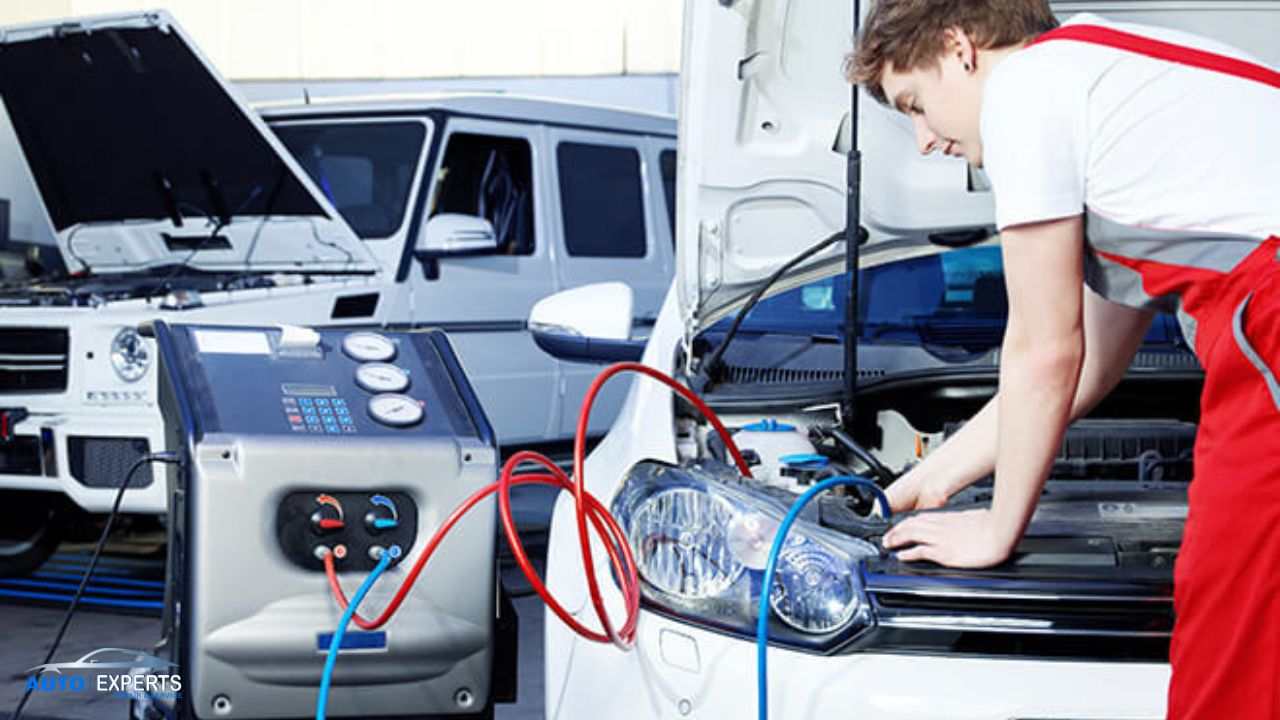Auto AC System Repair: A Comprehensive Guide to Keeping Your Car Cool
When the summer heat turns your car into a sauna, a well-functioning air conditioning (AC) system becomes a lifesaver. However, like any vehicle component, the auto AC system can face issues over time. Understanding how to diagnose and repair common problems can save you from sweltering discomfort and costly repairs. In this guide, we’ll explore essential aspects of auto AC system repair, ensuring you can keep your vehicle cool and comfortable throughout the year.
Understanding Your Auto AC System
Your car’s AC system is a complex network designed to keep you cool by removing heat and humidity from the cabin. It includes several key components:
- Compressor: The heart of the AC system, the compressor pumps refrigerant through the system.
- Condenser: Located at the front of the vehicle, it releases heat absorbed by the refrigerant.
- Evaporator: Found inside the cabin, it cools the air before it enters the vehicle.
- Expansion Valve: Controls the flow of refrigerant into the evaporator.
- Refrigerant: A chemical that absorbs and releases heat to cool the air.
Common Auto AC System Problems
- Weak or No Cool Air: If your AC isn’t cooling effectively, the issue might be low refrigerant levels, a failing compressor, or a clogged condenser. Start by checking the refrigerant level and adding more if necessary. If the problem persists, a professional inspection may be required.
- Strange Noises: Unusual sounds like grinding or squealing could indicate a problem with the compressor or other moving parts. These noises often signal that components are worn out or damaged and may need replacement.
- AC Blowing Warm Air: If your AC system blows warm air despite being set to cold, it could be due to a refrigerant leak, a faulty thermostat, or a malfunctioning compressor. Inspect for visible leaks and consider professional help to diagnose and fix the issue.
- Odors: Bad smells coming from the AC can be caused by mold or mildew in the system. Regularly cleaning the evaporator and changing the cabin air filter can help prevent unpleasant odors.
DIY Repair Tips
While some AC repairs require professional expertise, there are a few basic steps you can take to address minor issues:
- Check Refrigerant Levels: Use an AC refrigerant gauge to check the levels. If they’re low, you may need to add more refrigerant. Be cautious, as overcharging can cause additional problems.
- Inspect the Cabin Air Filter: A clogged air filter can restrict airflow and reduce cooling efficiency. Replace the cabin air filter regularly to maintain optimal performance.
- Examine the AC Fuses: Blown fuses can disrupt the AC system. Check your vehicle’s fuse box and replace any blown fuses to restore functionality.
- Clean the Condenser: Dust, dirt, and debris can block the condenser, reducing cooling efficiency. Use a soft brush or compressed air to gently clean the condenser fins.
When to Seek Professional Help
Some issues are best handled by a qualified technician. If you encounter the following problems, seek professional assistance:
- Refrigerant Leaks: Detecting and repairing refrigerant leaks requires specialized equipment and expertise.
- Compressor Issues: The compressor is a critical component that often requires professional repair or replacement.
- Electrical Problems: Complex electrical issues within the AC system should be diagnosed by a professional to prevent further damage.
Regular Maintenance for Longevity
Preventative maintenance is key to extending the life of your auto AC system. Follow these tips to keep your system running smoothly:
- Regularly Inspect the System: Schedule routine check-ups to catch potential issues early.
- Keep the System Clean: Clean the condenser and replace the cabin air filter as needed.
- Use the AC Regularly: Even in cooler months, running the AC occasionally helps maintain system components and prevent seals from drying out.
Conclusion
Maintaining your auto AC system is crucial for a comfortable driving experience, especially during the hot summer months. By understanding common problems, performing basic DIY repairs, and knowing when to seek professional help, you can keep your AC system running efficiently. Regular maintenance and prompt attention to issues will ensure that your vehicle remains cool and pleasant, no matter the weather outside.
If you encounter persistent issues or need expert assistance, don’t hesitate to contact a professional auto AC repair service. They can provide comprehensive diagnostics and repairs to keep your car’s AC system in top condition.

